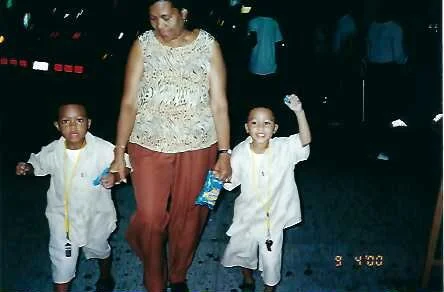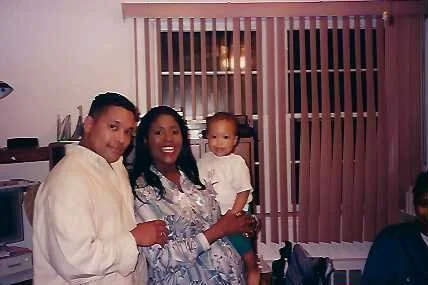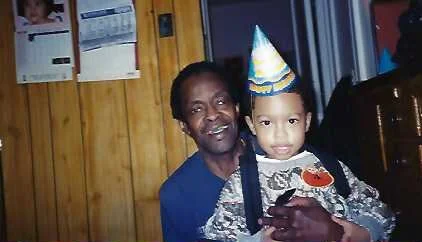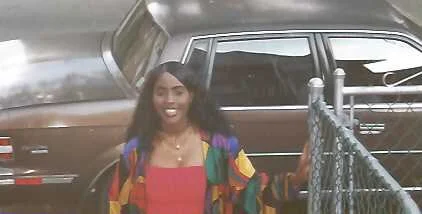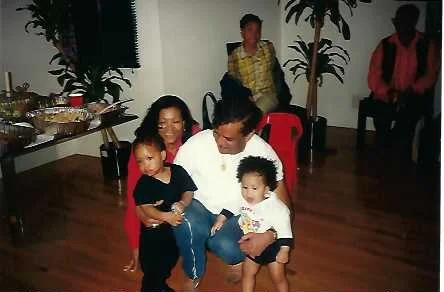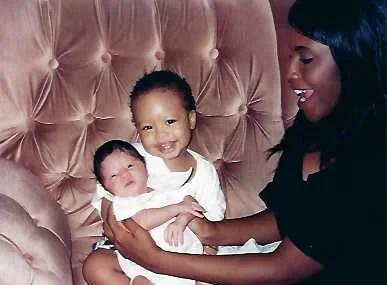First Generations Speak
By Nyles Pollonais
It had to be no later than 8:45 am, as the class had already been seated and our third grade teacher, Ms. Williams, was preparing our next language arts word on the board. Back in the early 2000s we still had chalkboards, but I don’t think anyone truly knew better or worried about the constant screeching of the chalk or the dusty dry erasers. I sat towards the front of the class, because my eyes were not good enough to sit in the back, as my mother would say. All of the students were required to wear a uniform — a yellow shirt, a green sweater with an embroidered logo, green slacks, and brown shoes. I attended Phyl’s Academy, a private school in Brooklyn, New York. The Academy was predominantly Afro-Caribbean; it carried with it a sense of pride, the smell of freshly cooked lunches, and a regiment of rigid structure. As Ms. Williams, who had coincidentally held the same name as my mother, finished writing the word ‘thaw’ on the board, she asked the students, firstly, to raise their hands and then, secondly, to pronounce the word she had just written. My hand went up immediately, from what I can remember. I believe it was because of my close proximity to the board, and my need to achieve that I was given the chance to do what she had asked. As the pronunciation formed in whatever section of my brain, it was accompanied by mental videos and images of my Guyanese mother and grandmother cooking dishes like Curry, Souse, and Cook-up in our East New York home. I remember hearing their voices as they would ask me to remove the frozen packages, like salt-fish, turkey, salt beef, goat, and other delicacies from our brown fridge so they would ‘taw-out’ in the sink. Quick to jump at the question, I said ‘taw’ with no hesitation, and felt proud in my response, because I knew I was correct... right? Well not quite, often in Caribbean dialects some consonants are naturally removed from the word. The class giggled as Ms. Williams looked at me with a smirk and said, “it’s pronounced th-aw, Nyles.”
My name is Nyles Pollonais, and I’m a first-generation citizen of the United States. My maternal grandmother emigrated to America from Guyana, South America 50 years ago on January 29th, 1970, making her the first of her 12 brothers and sisters to reach the United States mainland.
Because of the Vietnam war, “there was a shortage of nurses in the U.S.A [...] and many Guyanese nurses migrated...” to meet their needs (Guyanese Nurses Association). A few years later, my paternal Afro-Chinese grandmother traveled from Trinidad to accomplish the same feat in New York. Due to workplace constraints, and the instability of housing, they were not immediately able to bring their children and family members when they came. So both my mother and father grew up in Guyana and Trinidad with their grandmothers, aunts, and uncles, respectively. Daddats (my maternal grandfather) told me stories of leaving his childhood home on a “donkey-cart” because cars and other modes of transportation had not reached the impoverished sides of town. It was the only way to reach Georgetown where he’d begin his studies in engineering. I remember my Gran-ma (my maternal grandmother) telling me of how she and her sisters would ‘fetch-water” as a means of social contribution because everyone in the house had a role to play growing up in East Coast Berbice, or as they called it, ‘The Village.’ Gran-ma Eileen (my paternal grandmother) told me of her hardworking father and how he’d cook for his family after a long day of work at the shipyards and say “Chi-Fan” or “food’s ready” in Chinese Mandarin in Port-of-Spain. I say all this to mention how strict my grandparents became towards my parents when they reached the land of opportunity. There was no time for slack, and that energy, that drive had been instilled in them, and inherently me, ever since.
Firsthand, I observed the societal contributions of my family and the ways in which they held themselves accountable to the deteriorating social standards of American society. I also noticed how they would pick and choose what cultural traditions of either country they would adopt and what they would denounce. Mom, the youngest of the Williams clan, was the powerhouse of the three children. After excelling in her studies, skipping a grade in middle school, and going to a private boarding school in Maryland, she attended New York University and achieved her Bachelor of Arts in Political Science. Dad, the eldest of the Pollonais family, was an educated star athlete and social activist who ran a marathon from New York to Washington, D.C. in 1983 to have the Federal government recognize Martin Luther King, Jr. Day as a federal holiday. As many first-generation Americans understand, the accomplishments of the children must surpass the achievements of the parents who came before, and at 24, I’ve come to understand the reason. If my grandparents could move from their home country to a place they had never been without any social circles or support and succeed; if my parents could achieve such accomplishments at their young ages despite the ridicule of their peers and surpass their limits; then their children and grandchildren, respectively, with all the opportunity at their feet, would have to do better. It would hurt too much otherwise, to know that all their sacrifices had gone to waste. As the child of immigrants, I want to take you on a journey throughout my life and what is has meant for me to be a first generation American. Our efforts, cultures, and dialects are often misunderstood, but at the end of the day, it's all meant with love and the undying drive to survive. We know how close we are to what we escaped within one generation and we also know how close we are to what we are able to achieve in this society. We are the backbone of America.
Until the next article, as my Granny (my maternal great-grandmother) would say, “stand softly.”
Meet the Writer
Nyles Pollonais graduated from New York University in 2018 with a Bachelor of Arts in Political Science. He is a writer, entrepreneur, musician, and future educator who spends most of his time focusing on political theory and current events. He encourages you to take a look at his company, Binary Aeon, and the work they're doing to protect individual data rights and online privacy.


